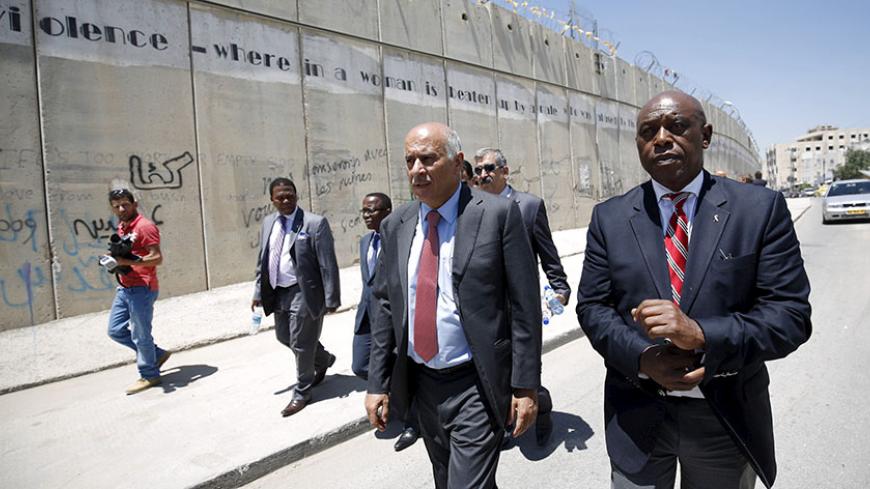When the global community was discussing an anti-settlement resolution in New York, officials at the FIFA headquarters in Zurich were watching the deliberation closely. When United Nations Security Council Resolution 2334 was approved without a single opposition in the 15-member Security Council Dec. 23, the international governing body of soccer was provided a strong document to resolve the status of the areas in which six Israeli soccer clubs are playing. The clubs are located in West Bank settlements and FIFA bylaws clearly state that soccer associations need permission to play in the territories of another soccer association.
Since June 2015, when FIFA’s general assembly appointed a monitoring committee headed by South African Tokyo Sexwale, the issue of the status of the territories has been the center of discussion. Israelis claim that the West Bank is “disputed territory” and paid little attention to a letter from the UN clearly setting the record straight as to the territories' status. Wilfried Lemke, the special adviser to the UN secretary-general on sport for development and peace, wrote a letter to Sexwale in October saying the Security Council had determined that Israeli settlements in the territories lack legal validity.



